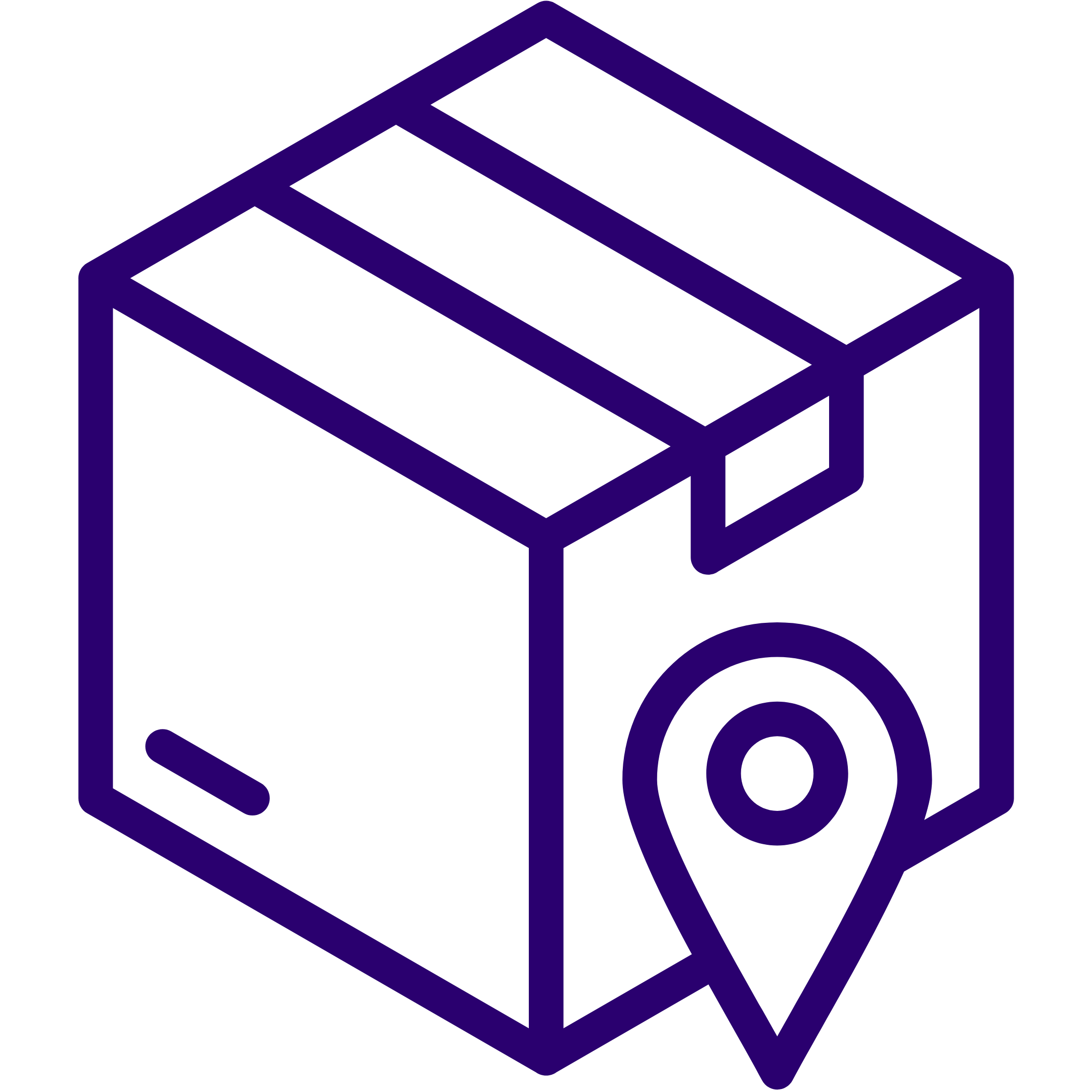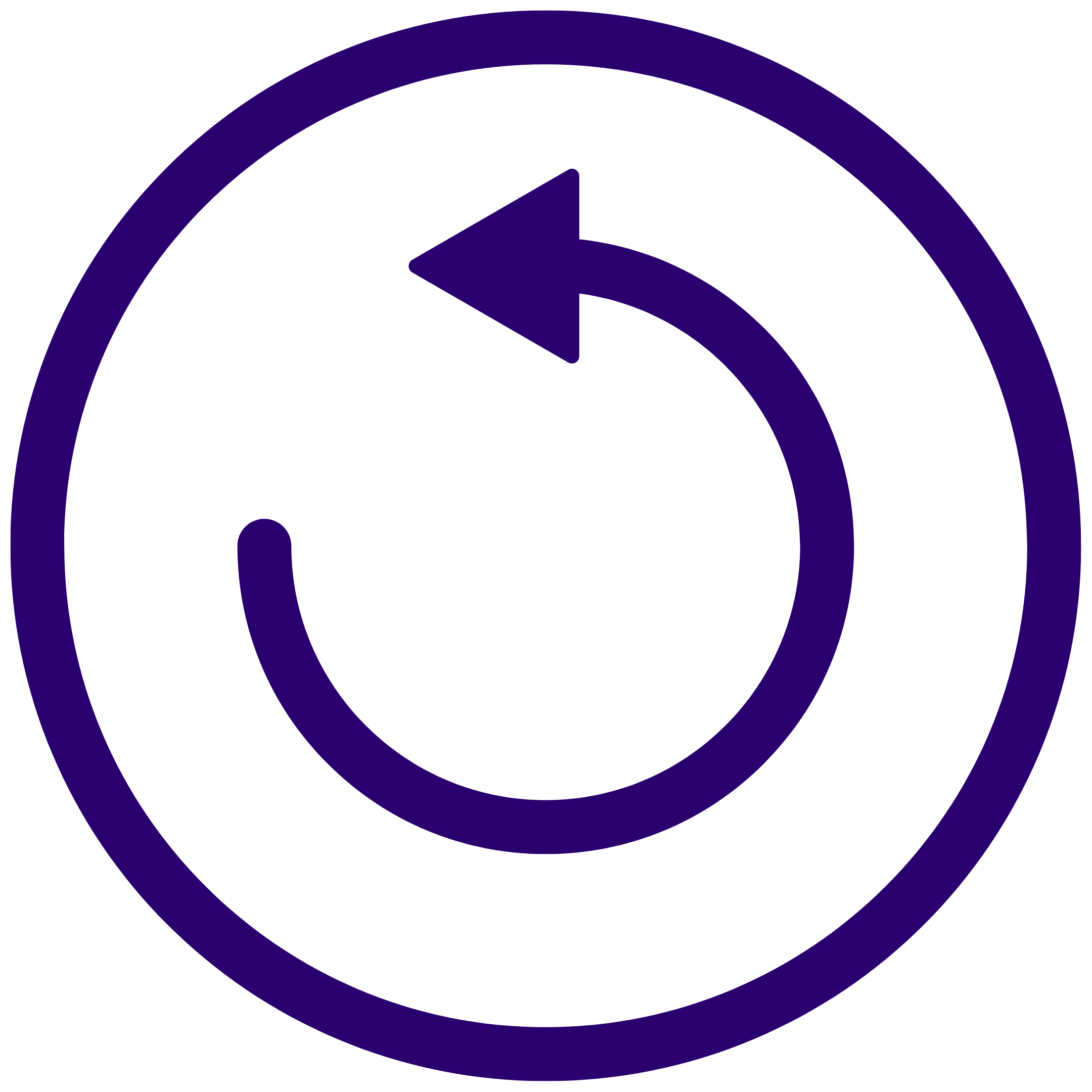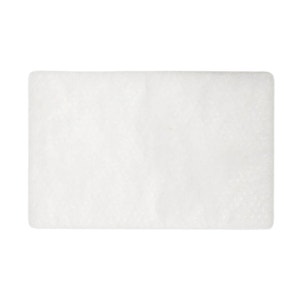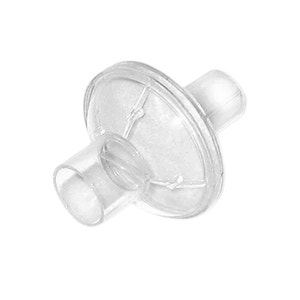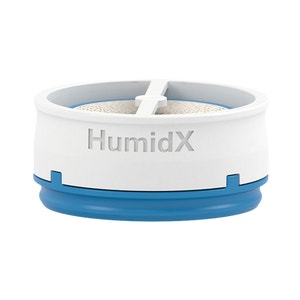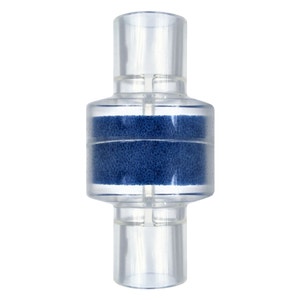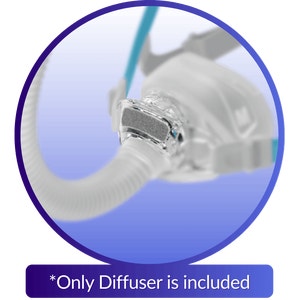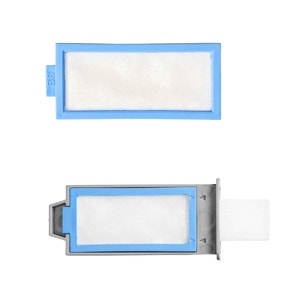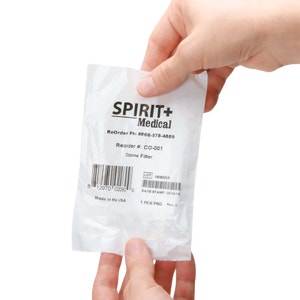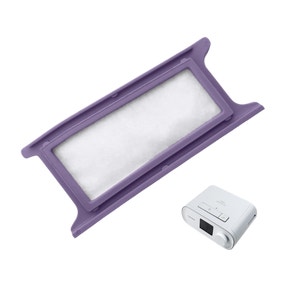 Universal Inline Heat Moisture Exchange CPAP Humidifier FilterSpecial Price $4.95 Regular Price $5.95
Universal Inline Heat Moisture Exchange CPAP Humidifier FilterSpecial Price $4.95 Regular Price $5.95 Spirit Medical Ozone Filters for the NUWAVE CPAP SanitizerSpecial Price $12.00 Regular Price $20.00
Spirit Medical Ozone Filters for the NUWAVE CPAP SanitizerSpecial Price $12.00 Regular Price $20.00
CPAP filters not only protect your health, but also the health of your CPAP unit. An air filter captures the dust, pollen, mold, pet dander, and other allergens that could otherwise end up in your airways or build up in your CPAP.
CPAP filters are designed to work with your specific model of CPAP, BiPAP, APAP, or in some cases, CPAP mask.
Types of CPAP Filters
- Disposable CPAP Filters - Typically made of polyester or mesh paper, and are designed to be replaced regularly
- Reusable Foam Filters - Designed to be reused for up to 6 months, but should be washed regularly
- Bacteria Filters - Also called hypoallergenic filters, these in-line filters are a separate and optional type of filtration
- CPAP Mask Diffuser Filters - Some CPAP masks include diffuser filters which break up exhaled air to make it quieter and softer
Can You Wash and Reuse CPAP Filters?
That depends on the type of CPAP machine filter! Reusable foam filters can and should be washed regularly. Wash this kind of filter with warm, soapy water once a week along with your other CPAP supplies. Be sure to rinse it thoroughly and allow it to dry completely before reusing it.
Disposable CPAP filters are usually made of a fine paper or polyester, which can be damaged by water, and should not be washed.
How Often Should I Change the Filter on My CPAP?
To keep your CPAP therapy both effective and hygienic you should replace your CPAP air filter regularly, regardless of the type of filter.
- Disposable Filters - Every 30 days, or sooner if discolored
- Reusable Filters - Every 6 month, or sooner if the foam is damaged
- Bacteria Filters - Every 30 days, or sooner if discolored
What Happens If I Don’t Clean/Replace My CPAP Filter?
Remember that your CPAP therapy is part of a healthcare regimen. Allergens like dust, mold, pollen, and pet dander can irritate your airways and worsen your sleep apnea.
Worse yet, without CPAP filters, the buildup of contaminants can turn your CPAP machine into a breeding ground for germs and bacteria. To keep you safe and to prolong the life of your CPAP equipment, you should always clean and replace your CPAP filters as recommended.
CPAP filters not only protect your health, but also the health of your CPAP unit. An air filter captures the dust, pollen, mold, pet dander, and other allergens that could otherwise end up in your airways or build up in your CPAP.
CPAP filters are designed to work with your specific model of CPAP, BiPAP, APAP, or in some cases, CPAP mask.
Types of CPAP Filters
-
Disposable CPAP Filters - Typically made of polyester or mesh paper, and are designed to be replaced regularly
-
Reusable Foam Filters - Designed to be reused for up to 6 months, but should be washed regularly
-
Bacteria Filters - Also called hypoallergenic filters, these in-line filters are a separate and optional type of filtration
-
CPAP Mask Diffuser Filters - Some CPAP masks include diffuser filters which break up exhaled air to make it quieter and softer
-
Can You Wash and Reuse CPAP Filters?
That depends on the type of CPAP machine filter! Reusable foam filters can and should be washed regularly. Wash this kind of filter with warm, soapy water once a week along with your other CPAP supplies. Be sure to rinse it thoroughly and allow it to dry completely before reusing it.
Disposable CPAP filters are usually made of a fine paper or polyester, which can be damaged by water, and should not be washed.
How Often Should I Change the Filter on My CPAP?
To keep your CPAP therapy both effective and hygienic you should replace your CPAP air filter regularly, regardless of the type of filter.
-
Disposable Filters - Every 30 days, or sooner if discolored
-
Reusable Filters - Every 6 month, or sooner if the foam is damaged
-
Bacteria Filters - Every 30 days, or sooner if discolored
-
What Happens If I Don’t Clean/Replace My CPAP Filter?
Remember that your CPAP therapy is part of a healthcare regimen. Allergens like dust, mold, pollen, and pet dander can irritate your airways and worsen your sleep apnea.
Worse yet, without CPAP filters, the buildup of contaminants can turn your CPAP machine into a breeding ground for germs and bacteria. To keep you safe and to prolong the life of your CPAP equipment, you should always clean and replace your CPAP filters as recommended.

